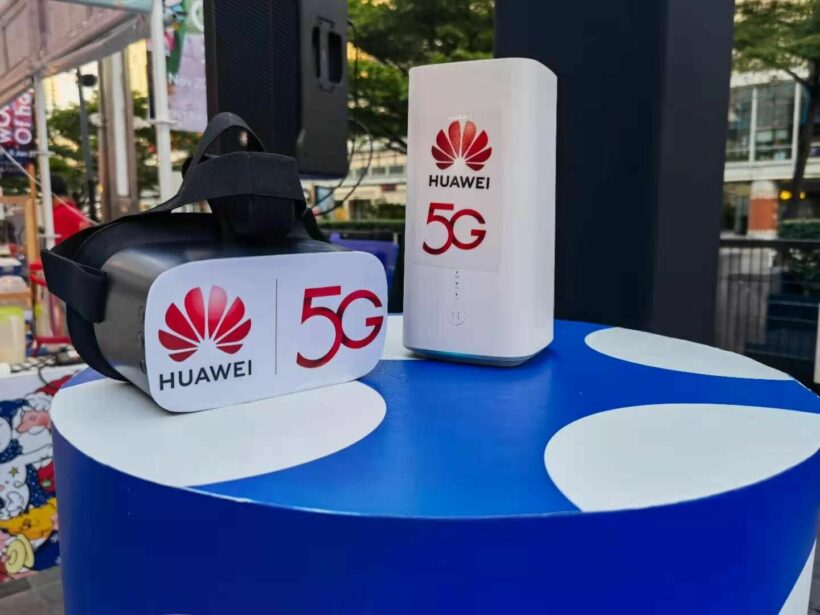Huawei reportedly working with Thai government for 5G

Thailand has taken the next step in the 5G scene by joining hands with Huawei Technologies, although the Chinese tech giant remains on the blacklist of the US government’s cyber-security list.
Last year, Huawei Thailand CEO Abel Deng was seen attending the inauguration event of Siriraj World Class 5G Smart Hospital with PM Prayut Chan-o-cha, a month after the prime minister held a virtual meeting with the company’s founder Ren Zhengfei to strengthen the cooperation between Thailand and Huawei, which has sparked many disputes among experts.
After the meeting, Prayut said…
“Huawei has provided profound contributions to Thailand’s fight against the pandemic and the country’s digital transformation.”
As Siriraj Hospital was founded by the father of Thailand’s King Bhumibol Adulyadej (Rama IX), many saw the occasion as Huawei’s advantage in expanding its weight in Thailand’s economy.
But the collaboration between the royal institution signifies that Thailand is welcoming the technology company, according to the senior programme specialist for Southeast Asian Regional Security at The Asia Foundation in Thailand, Benjamin Zawacki.
“It sends a very strong signal that Thailand is opening the door to Huawei, especially during a public health crisis.”
Since the pandemic took place, the kingdom has earned more credits from China than the US, as the mainland was quick to deliver its Sinovac and Sinopharm vaccines to Thailand, whilst the US’s Pfizer and Moderna vaccines took a while.
At the same time, Siriraj Hospital and Huawei tested 5G portable medical boxes, 5G medical carts, and 5G smart hospital beds in a pilot programme. Thailand is positioning itself as a regional medical and wellness destination for international visitors and patients.
As Thailand’s three major mobile phone service providers; AIS, DTAC, and True, were awarded 5G licenses and were heavily reliant on Huawei technology, European providers Ericsson and Nokia made efforts to diversify them from the Chinese tech giant by using alternative 5G high tech. Ericsson is reportedly the second-largest player in the Thai market after Huawei.
“I’m here in Thailand right now because I need a change”, said Igor Maurell, Ericsson Thailand’s newly appointed president, who was previously vice president of Ericsson Southeast Asia, Oceania, and India.
“It [Thailand] is a front-runner in Southeast Asia when it comes to 5G, so it’s a very exciting market for us,” Maurell told Asia Times, adding that it can provide clients with a secure solution even if the country’s mobile service network is judged unsecure.
According to Sihasak Phuangketkeow, a former diplomat at Thailand’s Ministry of Foreign Affairs, Thailand has been actively pushing the types of sectors that will require new technology and will mostly be export-oriented, particularly in the Eastern Economic Corridor (EEC) market.
According to industry sources, Huawei’s 5G solutions are also far less expensive than its competitors. There are still some security worries, but they may be overcome by other factors working in Thailand’s favour.
“The Chinese economy is massive, and China’s supply chains will continue to be critical”.
SOURCE: Asia Times
Latest Thailand News
Follow The Thaiger on Google News:


























